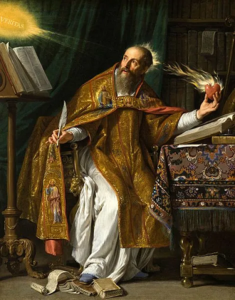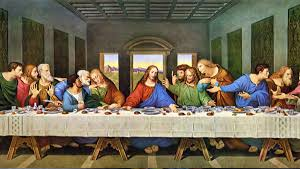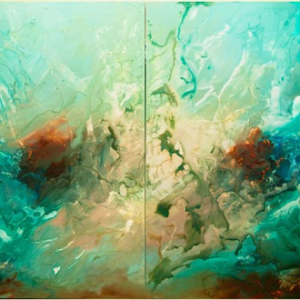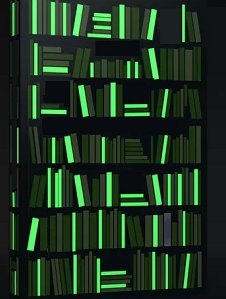
Arquivo para a ‘Information Science’ Categoria
Putting out fires
With the initiative of Egypt and Qatar, supported by other countries, there is an attempt for a ceasefire between Hamas and Israel that would avoid a likely retaliation from Iran for the assassination of Hamas leader, Ismil Haniyeh, in Tehran, at the end of last July .
by other countries, there is an attempt for a ceasefire between Hamas and Israel that would avoid a likely retaliation from Iran for the assassination of Hamas leader, Ismil Haniyeh, in Tehran, at the end of last July .
Iran considers it possible, but demands an end to Israel’s incursions into the Gaza strip, Israel is preparing as if war were inevitable, and this would raise a new front of global war between the West and now the Arab world.
The other front in the war between Ukraine and Russia with increasing NATO involvement, Ukraine launched a surprise attack on Russian territory in the city of Kursk where intense fighting is taking place, with Russia recruiting young people for military service again.
Two worrying situations at nuclear plants also occurred this weekend, one in the city of Rostov, where a new plant was switched on and there were concerns about a unit having some malfunction, but the plant’s chief engineer, Andrey Gorbunov, said according to press sources: “we are working at maximum efficiency”, saying that it was routine maintenance.
More serious was a fire yesterday, at the facilities of the Zaporizhzhia nuclear power plant, in the south of Ukraine, this Sunday (11/08), as reported by the Reuters agency, located in a war zone, on Ukrainian territory, but under the control from Russia, both countries exchanged accusations for the fire caused, the president of Ukraine, Zelensky, claims that the situation is under control and radiation levels are normal.
Evgeny Balitsky, an official stationed by Russia in the occupied Zaporizhzhia region, accused Ukraine of starting the fire by shelling the nearby town of Enerhodar, and Russian officials said the plant “suffered serious damage for the first time” from the attack.
Thus, the danger of wars, which produce enormous losses and human lives, the risk of an “accident”, a hasty or cruel attitude, such as murders, can trigger irreversible processes and create an irreversible global climate of wars and horrors.
The hope that peacekeeping forces, and in the case of competent technical force plants, will avoid greater tragedies than those that wars already cause, deaths and human despair of civilians and innocent people.
What is love after all
In a polarized world and now on the verge of  regional wars that can escalate, talking about love seems innocuous and has no reflection on reality, but there are good works produced by humanity.
regional wars that can escalate, talking about love seems innocuous and has no reflection on reality, but there are good works produced by humanity.
Paul Ricoeur wrote and we have already posted about this a few times about Le socius e le prochain (The partner and the neighbor), separating interests from true love for others.
However, Hannah Arendt’s work, although not definitive regarding love, the advisor Karl Jaspers himself expressed this about his doctorate “Love in Saint Augustine”, developed and appropriated some fundamental categories on the subject, of course we are not talking about erotic nor familial love.
According to author George McKenna, in a review of her thesis, Arendt tried to include a revision in her “The Human Condition”, but it is not very clear in Arendt’s book that, despite this, it has good development.
If this love can also be expressed in ancient Greek literature, such as agape love, which differs from eros and philia in this literature, from a Christian point of view the best development made is in fact that of Saint Augustine.
First because he separated this concept from good x evil Manichaeism, a dualism still present in almost all Western philosophy due to idealism and puritanism, then because he was in fact raptured upon discovering divine love, he wrote: “Late I loved you, O beauty so ancient and so young! Too late I loved you! Behold, you lived within me and I was looking for you outside!” (Confessions of Saint Augustine).
Then man must love his neighbor as God’s creation: […] man loves the world as God’s creation; in the world the creature loves the world just as God loves it. This is the realization of a self-denial in which everyone, including yourself, simultaneously reclaims your God-given importance. This achievement is love for others (ARENDT, 1996, p. 93).
Man can love his neighbor as a creation by returning to his origin: “It is only where I can be certain of my own being that I can love my neighbor in his true being, which is in his createdness.” (ARENDT, 1996, p. 95)
In this type of love, man loves the divine essence that exists in himself, in others, in the world, man “loves God in them” (ARENDT, 1996, 9
The biblical reading also summarizes the law and the Christian prophets like this (Mt 22, 38-40): “This is the greatest and the first commandment. The second is similar to this: ‘You shall love your neighbor as yourself’. All the Law and the prophets depend on these two commandments.”
Love contains all the virtues: it does not become conceited or angry, it knows how to see where the true signs of happiness, balance and hope are found, even in a troubled world.
ARENDT, Hannah. Love and Saint Augustine. Chicago: University of Chicago Press, 1996.
Global tension grows
The death of the leader of Hamas, Ismail Haniyeh, in the middle of Iranian territory by “a short-range missile” that was in Iran for the inauguration of the new president of Iran Masoud Pezeshkian, raised tension between Israel and Iran to the highest level, and the Iran’s response will be inevitable.
in the middle of Iranian territory by “a short-range missile” that was in Iran for the inauguration of the new president of Iran Masoud Pezeshkian, raised tension between Israel and Iran to the highest level, and the Iran’s response will be inevitable.
The sending of the former commander of troops in Ukraine, Valerri Zaluzhnyi, to be ambassador to the United Kingdom, also raises serious concerns not only due to the proximity of the British government, which will certainly remain informed of military actions, the new ambassador outlined a dark and painful for the future of the war in Eastern Europe.
Ukraine received the expected F-16 fighter jets (photo) to reinforce its air defense, thanks to Norway, the Netherlands and Denmark, apparently the donors of this shipment, however it is still waiting for others, the political result is a greater involvement of forces from other countries in the war.
Countries in the Balkans and Scandinavia have already begun compulsory conscription for military service fearing an expansion of the war.
Latin America is also suffering from the controversial Venezuelan election, the AP news agency obtained photos of almost 79% of the election minutes and would prove the election of the opposition candidate Edmundo Gonzáles, while the CNE, Maduro’s body for counting the ballots, gave the dictator as winner.
There were several protests on the streets, and according to Maduro himself there are already more than 2,000 people detained, with deaths and injuries in the demonstrations that are repressed by the military forces.
There is always hope for those who believe in peace, respect for cultural, religious and political differences, improvement in income distribution and help for needy populations. The problems of today’s world are justice and freedom, war only worsens these conditions.
The heart and beliefs
The heart is a vital organ, it irrigates blood throughout the organism reaching all the cells of the human body, when we talk about beliefs (they are also hidden in objects of human knowledge, we believe that something is a certain “way”) we do not we just talk about faith.
throughout the organism reaching all the cells of the human body, when we talk about beliefs (they are also hidden in objects of human knowledge, we believe that something is a certain “way”) we do not we just talk about faith.
Byung-Chul Han, when carrying out his analysis based on the classic authors of Western philosophy, approaches a perspective of what he will call “affective tone”, focusing mainly on Heidegger.
His book, unlike others that are just essays, has “Heidegger’s heart: on the concept of affective tonality in Martin Heidegger” (Ed. Vozes, 2023), his first book in my opinion, with a new, human and spiritual analysis. even spiritual at the core of Western philosophy.
Part of a concept dear to Judeo-Christian civilization, which is that of circumcision, but circumcision of the heart and not of the failed organ (the skin attached to the beginning of the penis), it is necessary to remember that although it is a male organ, it is an emblem of power, of authority and desire, was culturally a warlike culture.
The part of his vision with his eastern vision and that has a spiritual sense for his entire philosophical question, Han will develop that it is the circumcision of the heart, that which modulates and governs affection, circumcision has a different meaning than what is commonly spoken, the controversy between Christians and Jews at the beginning of the Christian era, is the circumcision of the heart.
Circumcision is the act of removing the skin of the male sexual organ, but even in the biblical sense it was the skin of the heart, in Deuteronomy it reads: “Circumcise therefore the foreskin of your heart, and no longer stiffen your neck” (Dt 10,6), citing in the epigraph of the first chapter of the book: “Circumcision of the heart” (Han, 2023, p. 7).
Thus, “this circumcision frees the heart from subjective interiority” (Han, 2023, p. 11), and there is a surprising preliminary conclusion in Heidegger: “Heidegger’s heart, on the other hand [confronts with Derrida], listens to one voice , follows the tonality and gravity of the “one, the only one that unifies” (Han, 2023, p. 14-15), for him it is an “ear of his heart” and thus there is something strong spiritual in this.
It is there that the human being finds his essence: “he remains in tune with that from which his essence is determined. In the tuning determination, man is affected and called by a voice that sounds all the purer the more silently it resonates through the sonant” (Han, 2023, p. 15) literally quoting Heidegger.
He will not say that it is faith, and it reveals the Buddhist influence of his thought, the author’s only link, in my opinion, with idealism, because in Buddhism there is only a personal elevation, there is no Person on the other side, who resonates through the resounding, that voice of the Holy Spirit.
The author clarifies the disagreement between Derridá and |Heidegger: “The ‘polyphony’ that Derrida opposes to totality does not exclude tonality” (pg. 16) we would say if these authors: Han, Derrida and Heidegger were Christians, that Heidegger and Han would be monotheists and Derrida would be polytheist, but it is clear that this “resounding voice” is not that of God, but from within.
Han, B.C. (2023) Heidegger’s Heart: on the concept of affective tone in Martin Heidegger. Trans. Rafael Rodrigues Garcia, Milton Camargo Mota. Brazil, Petrópolis: Vozes.
Build a life and not exclude
Both Nietzsche in The Gay Science and Peter Sloterdijk’s Post-God stated the death of God, in fact it is just an attempt to kill God, because if he does not exist we cannot kill him and if he exists he is immortal, so we can only just erase it from our mind temporarily as it will come back intuitively, the proof is that atheists do not ignore Him.
Sloterdijk’s Post-God stated the death of God, in fact it is just an attempt to kill God, because if he does not exist we cannot kill him and if he exists he is immortal, so we can only just erase it from our mind temporarily as it will come back intuitively, the proof is that atheists do not ignore Him.
Nietzsche’s text is clear, but it was also distorted: “The mad man threw himself into their midst and pierced them with his gaze. ‘Where has God gone’, he shouted, ‘I will tell you now! We killed him – you and me. We are all your killers! But how did we do this? How do we manage to drink the sea entirely? Who gave us the sponge to erase the horizon? What did we do, untying the earth from its sun? Where are you moving now? Where do we move? Away from all the suns?” (Nietzsche, The Gay Science, § 125)
Thus, not being able to kill him, they destroy his “symbolic” values, such as the Holy Supper in the Olympics, for example, or distorting the true history of the God-man: Jesus, as did the idealist theology of Ludwig Feuerbach that we recently posted, created an “absolute” empty and abstract, which cannot be God as a trinitarian person.
However, the reaction to the Hegelian Theocide, that of Feuerbach, in which God only exists in the mind and thus is something of ideal thought and only with idealistic “transcendence” do we reach him, there is the religious reaction of closing oneself in the “community of the elect” , of God’s favorites, those chosen by criteria that a certain community determines and the rest are lepers, public sinners and unworthy of the “kingdom”, bad seed.
The parable of the tares and the wheat is clear, both are born in the same environment, but one does not bear fruit, will not participate in the wheat harvest and will be separated like chaff.
In a way, the reaction to this elevated God, distant from men, “all powerful” is nothing more than a vision of power that is also mundane and temporary and a form of despiritualized asceticism, the life of “exercises” as advocated by Peter Sloterdijk.
Spiritual truth is one in which everyone is included, there is unity and respect for all and no one is seen as a leper or bad seed, this is a Pharisaic interpretation, but it is clear that good seed bears good fruit so one can look at reality in its own way. back, but without prejudiced or exclusionary judgment.
Founded on perfectionism and extreme moralism, morality is important and should not be denied, however, taken to the extreme it makes “addiction” much closer and more likely to fall into it, that is, they are in fact false moralists because they are unable to put into practice what they defend, and it is these false exercises that lead to a practice of deviations and moral aberrations.
The union of these concepts with true humanism, one whose inspiration is divine, cannot and should not lead to attitudes of exclusion, isolation and lack of charity.
Everything has to be thought of in a balanced way, from politics to religiosity, from family to social life, from social action to contemplation.
Acts of sabotage and opening of the Olympics
Hours before the opening of the Paris Olympics, several “acts of sabotage” were carried out in a “prepared and coordinated” manner, affecting France’s railway lines, French Prime Minister Gabriel Attal described the event, according to French sources, as “massive and serious” and thanked the firefighters and expressed indignation at the disruption to the movement of tourists and French people.
Olympics, several “acts of sabotage” were carried out in a “prepared and coordinated” manner, affecting France’s railway lines, French Prime Minister Gabriel Attal described the event, according to French sources, as “massive and serious” and thanked the firefighters and expressed indignation at the disruption to the movement of tourists and French people.
The opening ceremony had a strange message and without the beauty that always accompanied it in previous versions, Lady Gaga’s performance was recorded according to explanations “due to the rain”, a ceremony of trans people at a table seemed like an irony with the holy supper (that famous painting by Leonardo da Vinci) and a masked man who appears with the Olympic torch looks like a character from the Assassin’s Creed video games.
Also the white horse simulating riding on the water is something of enigmatic symbolism, perhaps the horse of the apocalypse or some allusion to war.
Except for the famous French song L’Hymme á l’amour by Edith Piaf, performed by Celine Dion, several French athletes paraded with the torch and lit the Olympic cauldron in a balloon, the lighting of which is maintained by an electrical system.
There was also a blackout on Saturday in Paris and the Olympic Committee itself, through the spokesperson for the Organizing Committee of the Paris 2024 Olympic Games: “we assume that we have crossed the line”.
The wars continue, the hope for peace increased since Russia for the first time admitted a return to the “Istanbul agreement” prior to the invasion of Ukraine.
Spirit and power
Power and autorithy seem to get confused, but this is not true as authoritarian governments are growing in the world and this has always been a bad symptom of civilization because it indicates both disputes and, at their limit, wars.
as authoritarian governments are growing in the world and this has always been a bad symptom of civilization because it indicates both disputes and, at their limit, wars.
Byung-Chul Han in his book “In the Swarm” explains after saying about the necessary distance in the public sphere, that the “waves of indignation indicate, moreover, a weak connection with the community” (Han, In the Swarm, 20,18, pg. 22) and he has a specific book about power.
The book What is Power? (2019) has a long analysis of the issue in Hegel, this is justified both by the influence on Western thought and by the incidence of the vision of power that affects the entire public sphere, but we highlight his vague concept of the Absolute and the influence even religious , seen in the previous post.
Its analysis is important when it refers to ontological concepts, thus defining that “the entity is, even when it is finite, surrounded by the other” (Han, 2019, p. 110) and the Being must generate a negativity in itself, this is not the case here of “bad thoughts” but the concept that cites in Paul Tillich (1886-1965) that the power of being as “the capacity of living beings to overcome negativity, or as he says, “non-being”, that is, the who does not involve it in self-affirmation” (pg. 111).
Quoting him, Han states: “one has more power to be, because it must have been overcome but not to be, and as long as one can overcome it. When you can no longer bear it or overcome it, then it is total impotence, the end of the power of being, the event. This is the risk of every living being” (Han, 2019, p. 111).
He cites Foucault’s thesis that the human being would be “the result of submission” (pg. 118) and Hegel who thinks that power should act primarily in a “non-repressive way” (pg. 119) however, both do not abandon the idea from the Absolute, which actually comes from Machiavelli’s Prince and Thomas Hobbes’ Leviathan, and as the author says: “power promises freedom” (pg. 121).
The need to create a “neurotic” religion of power, for Hegel, would come from the idea of God, the power that He has the power to “be himself”, this comes from idealism that does not overcome the division between subject and object, or be the Creator and the created (beings and entities) are not composed.
There is no doubt that power, without the necessary negativity of non-being (the inclusion of the Other) is a neurosis as Hegel says, and thus its “god” or “the spirit” “would still be an appearance of this neurosis” (Han, 2019 , p. 121).
“The pain of finitude can perfectly be the pain of any limit that separates me from the other, which can only be overcome by the creation of a particular continuity… it does not have the continuity of the self that power creates. She does not have the intention of returning to herself” (Han, 2019, p. 121).
Hegel’s neurotic power is not that of the Creator, it is of the being caged in the self, incapable of looking at and serving the Other, of leaving the self, of denying oneself to serve the Other, it is a neurotic power.
The idealistic religion
Among the Young Hegelians, those who along with Marx criticized the “old Hegelians”, especially David Strauss and Bruno Bauer, was Ludwig Andres Feuerbach (1804-1821) much better known for Karl Marx’s “Theses on Feuerbach” than for his own work, but his concepts, although criticized by Marx, also influenced him in addition to the other “new Hegelians” also known as the “Hegelian left”.
with Marx criticized the “old Hegelians”, especially David Strauss and Bruno Bauer, was Ludwig Andres Feuerbach (1804-1821) much better known for Karl Marx’s “Theses on Feuerbach” than for his own work, but his concepts, although criticized by Marx, also influenced him in addition to the other “new Hegelians” also known as the “Hegelian left”.
Feuerbach, coming from a Catholic environment, was educated in Protestantism, from a young age he was oriented towards religion, beginning his studies at the University of Heidelberg, but upon meeting Friedrich Hegel, he abandoned theology and became a student of this philosopher for two years, which provoked profound changes in his thinking and creates what I call here “idealistic religion”, but the God of Christianity is no longer Feuerbach’s god.
Hegel’s idea of the absolute is well known, where his “in itself” which is his “one” is not alienated from matter to finally emerge as “Absolute Spirit”, but man, as a conscious species, is the infinite itself and absolute, being man’s reason for his “liberation” to the detriment of indoctrination or Christianization (Feuerbach, 2013, p. 2-23) this God that man “imagines” is for the young Hegelian now in fact his own being, its own essence, it is necessary to understand that Being for idealists is not ontological Being, but rather an “anthropological” being.
Thus, religiosity, in the idealist analysis, would not be linked to an immaterial being, which transcends the human (idealist transcendence is the knowledge of the object), it is not a timeless and creative Being, but nature itself, in another way Spinoza also explored this .
Thus Feuerbach understands that man’s relationship with his “god”, which is different from other “young Hegelians” (Marx will criticize him), his god or gods, is founded on his own ex-sistence, a subject also explored in ontology, but seen as a relationship with “time” or temporal being.
The idealistic god is the one that man externalizes “is nothing more than the divinized essence” (Feuerbach, 2009, p. 29), in a way even more so as “the history of religion is the history of man” (Feuerbach, 2009 , p. 30) and here lies the dividing line with Marx because he sees history as his “mode of production”, the relationship with work and the means of production to carry it out: feudalism, capitalism, etc. Thus Feuerbach understands that man’s relationship with the supersensible, which for him “exists”, that is, has its ex-sistence, is in fact an “aesthetic pathology”, an amalgamation of mystical feelings that are at the same time the foundation and promoter of religiosity. : “Mourning and pain at the death of a person or at the diminution of light and heat, joy at the birth of a person, at the return of light and heat after freezing winter days or at the harvest, terror at phenomena in themselves terrible or at the least in man’s imagination… (Feuerbach, 2009, p. 49). So the big mistake, even for “religious people”, is to separate substantiality from spirituality, which is, in our view, the essence of false contemporary asceticism.
Feuerbach, Ludwig. (2009) Preleções sobre a Essência da Religião. Trad. José da Silva Brandão. Petrópolis/RJ. Editora Vozes.
Feuerbach, Ludwig. (2013) A Essência do Cristianismo. Trad. José da Silva Brandão. Petrópolis/RJ. Editora Vozes.
Painless society and the midnight library
Byung-Chul Han wrote the Palliative Society, not only about the Pandemic, but also and above all about the search for a world without pain, we are even capable of suffering and great efforts due to narcissism and personal aesthetics, what Peter Sloterdijk called of “the exercise society”, but a despiritualized asceticism.
not only about the Pandemic, but also and above all about the search for a world without pain, we are even capable of suffering and great efforts due to narcissism and personal aesthetics, what Peter Sloterdijk called of “the exercise society”, but a despiritualized asceticism.
The novel by English writer Matt Haig: The Midnight Library, tells of a 35-year-old woman full of talents and few achievements, regretting her bad choices in life, she wonders if she could have lived differently, after losing her job and his cat is run over, he decides to take his own life, in the stage between life and death he finds the Midnight Library (picture illustration brazilian cover), with the possibilities of lives he could have lived.
With the help of an old friend, she decides to move to Australia and renew old relationships, discovering that it is possible to review life and undo something that we regret, to have hope.
Among Nora’s initial dramas, I highlight the part where she says: “I get a headache looking at… cell phones”, it’s not just her, it’s a lot of people, this takes away the capacity for reflection and silence that Byung-Chul Han claims, the one that can make us reflect on life and our actions.
Palliative society, according to Byung-Chul Han, has nothing to do with palliative medicine, explains the Korean-German philosopher: “Thus, every critique of society has to carry out a hermeneutics of pain. If pain is left solely to the burden of medicine, we miss its character as a sign” (Han, 2011).
It reminds me of a saying by Ernest Jünger: “Tell me your relationship with pain, and I will tell you who you are!”, so every social or social suffering must precede and precede moments of reflection, or as Byung-Chul likes it, a “Contemplative Life ” another essay by the author.
“The survival society completely loses the meaning of the good life. Enjoyment is also sacrificed to health elevated to an end in itself” (Han, 2021, p. 34), that is, the very absence of a “hermeneutic” of pain can lead to the end of the meaning of life.
It also clarifies Agamben’s meaning of homo sacer and via nude: “Without resistance we subject ourselves to the state of exception that reduces life to bare life” (Han, 2021, p. 34).
Anguish, loneliness and depression do not only have social causes, but what we feed our souls on, in the biblical passage that the prophet Isaiah goes to visit Ezekiel who is stricken with a deadly disease (Is 1,1-6) after the supplications of Hezekah through the word of Isaiah God frees him not only from the disease, giving him another 15 years of life, but also “I will free you from the hands of King Assyria, together with this city, which I place under my protection” ( Is 1:6).
Of course, the social solution is not magical, but we face it better if our pain is understood.
Haig, M. (2020) A Biblioteca da meia-noite (The midnight library). Translation: Adriana Fidalgo, Brazil, RJ: Editora Record, 2020.
Han, Byung-Chul. (2021) A sociedade paliativa: a dor hoje (The palliative society: pain today). Trans. Lucas Machado. Brazil: Rj, Petrópolis: Vozes.
Fatigue and true rest
Giving a psychological and sociological picture of contemporary society Byung-Chul Han describes her as having “Neural diseases such as depression, attention deficit hyperactivity disorder (ADHD), borderline personality disorder (BPD) or Burnout Syndrome (SB) determine the pathological landscape of the beginning of the 21st century (HAN, 2017, p. 7).
of contemporary society Byung-Chul Han describes her as having “Neural diseases such as depression, attention deficit hyperactivity disorder (ADHD), borderline personality disorder (BPD) or Burnout Syndrome (SB) determine the pathological landscape of the beginning of the 21st century (HAN, 2017, p. 7).
Using a concept from his PhD advisor (he did his thesis on Heidegger) Peter Sloterdijk, his analysis extends to what he calls “the object of immunological defense is strangeness as such” (p. 8), the book was written before the pandemic ( also wrote about it in the Palliative Society, the one that rejects pain) and the concept of immunology here is one that states that the last century was a time in which a “clear division was established between inside and outside… the Cold War I followed the immunological regimen.”
Thus the book will explore the mystical concepts of Saint Gregory of Nazianzen, master of the contemplative life (of which Han also wrote a book), explores fundamental aspects of the inner life that combats the serious problems of the Active Life, which pushes us towards efficiency and tiredness under the pressure of demands and the cultural war that has taken place.
The immunological paradigm says “it is not in line with the process of globalization… also hybridization, which dominates not only the theoretical-cultural discourse, but also the feeling we have in today’s life, is diametrically contrary precisely to immunization” (p. 11).
His concept of resistance goes in the direction of Edgar Morin’s “resistance of the spirit”, but in our view it reaches the heart of the matter: “the dialectic of negativity is the fundamental feature of immunity” (p. 11), where the discourse of “engagement” is actually the void, as it is absent of true alternatives, as current immunology is one that accuses the Other, we remember here the distance from the pandemic (after the book as we said), a good “metaphor”.
Baudrillard quotes, speaking of the “obesity of all current systems”, in a time of overabundance, “the problem turns more to the rejection and expulsion” (pg. 15) of the Other.
His accurate elaboration on page 27 is that current “disciplinary systems” (or pseudo-ethical) seek the logic of production “what causes depression and exhaustion is not just the imperative to obey only oneself, but the pressure of performance” (p. 27).
Thus, meditating and completing is not distancing oneself from reality, but the possibility of looking at it with different eyes, seeking a true human and spiritual asceticism, where we can truly find rest and peace (despite and against daily wars and wars) because in truth is only possible through it.
I remember the biblical passage that says “come to me, all you who are tired” (Mt 11,28) and in a reinterpretation for today, in addition to seeking the divine, it is also about finding true interiority, which should not be disconnected from the vita activa, under penalty of tiredness.
Han, Byung-Chul. (2017) A Sociedade do Cansaço (Burnout Society), trans. Enio Paulo Giachini, 2nd. ed. Ampliada, Brazil, RJ: Petrópolis, Vozes.

